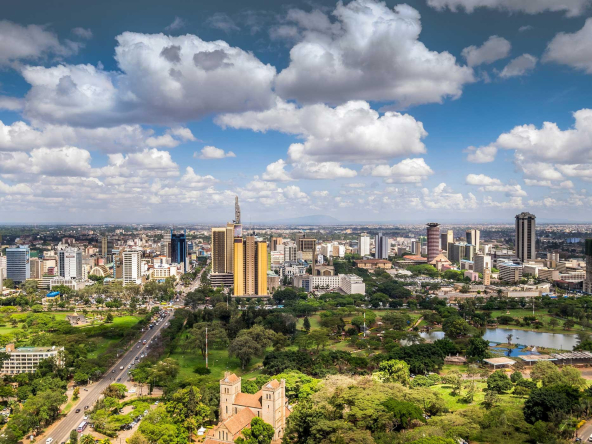Land Tenure Systems in Kenya
Land tenure systems in Kenya encompass the legal and customary frameworks that define how land is owned, managed, and utilized. The tenure systems are shaped by historical, cultural, and legal factors, and they play a crucial role in land administration and development in the country. The primary forms of land tenure in Kenya are:
1. Freehold Tenure
Definition and Characteristics: Freehold tenure is a system of land ownership where an individual or entity holds land indefinitely. It grants the owner full ownership rights, including the ability to use, lease, sell, or bequeath the land. The rights under freehold tenure are not limited in time and are often considered the most complete form of land ownership.
Legal Framework: Freehold tenure in Kenya is governed by the Land Act and the Land Registration Act. The Constitution of Kenya, 2010, also provides a framework for property rights under the Bill of Rights.
Transfer and Inheritance: Land under freehold tenure can be sold, transferred, or inherited by legal heirs. The process involves registration with the land registry, ensuring that all transactions are legally recognized.
2. Leasehold Tenure
Definition and Characteristics: Leasehold tenure involves leasing land from a landowner, typically the government, for a specified period. The lessee (tenant) holds rights to use the land for the duration of the lease but does not own the land outright. Leasehold terms can vary, often ranging from 99 years to shorter durations.
Legal Framework: The Land Act and the Land Registration Act regulate leasehold tenure. The leases are registered with the relevant land authorities, and the terms are set out in lease agreements.
Usage and Implications:
- Urban Development: Leasehold tenure is common in urban areas where land is leased for residential, commercial, or industrial use.
- Non citizens can also own property through leasehold tenure.
- Renewal and Reversion: At the end of the lease period, the lease can be renewed, or the land may revert to the lessor. Leasehold agreements typically specify renewal conditions.
Transfer and Inheritance: Leasehold interests can be transferred or inherited, subject to the terms of the lease agreement and the approval of the lessor.
3. Customary Tenure
Definition and Characteristics: Customary tenure is based on traditional land use and ownership practices, which vary among Kenya’s diverse ethnic communities. Under this system, land is often held communally or according to traditional rules, with usage rights determined by customary law.
Legal Framework: The Constitution of Kenya and the Community Land Act recognize customary land rights, though the formalization of these rights has historically been challenging. The Community Land Act aims to formalize and protect community land tenure.
Usage and Implications:
- Communal Land: Customary tenure is prevalent in many rural areas where land is owned and managed by clans, tribes, or communities.
- Land Use Rights: Customary tenure often includes communal rights to land use, and disputes are resolved through traditional mechanisms.
Transfer and Inheritance: Customary land rights can be passed down through generations according to traditional practices. However, formalizing these rights can be challenging, particularly in areas with overlapping claims or insufficient documentation.
4. Public Tenure
Definition and Characteristics: Public tenure refers to land owned by the state or government, designated for public use or held in trust for the people. This category includes land reserved for government institutions, parks, and public infrastructure.
Legal Framework: Public land is governed by the Constitution of Kenya and the Public Land Act. The National Land Commission (NLC) is responsible for managing and administering public land.
Usage and Implications:
- Government Purposes: Public land is used for government buildings, parks, reserves, and other public facilities.
- Leasing: The government may lease public land for private use under specific terms and conditions, often involving competitive bidding.
Transfer and Inheritance: Public land cannot be privately owned or inherited. However, it can be leased or allocated for specific purposes as determined by the government.
5. Community Tenure
Definition and Characteristics: Community tenure involves communal ownership and management of land by a group of people, often based on traditional or local governance structures. This system recognizes collective rights to land use and management.
Legal Framework: The Community Land Act and the Constitution of Kenya provide a legal framework for community land tenure, including the establishment of Community Land Management Committees (CLMCs) to oversee land administration.
Usage and Implications:
- Collective Management: Land under community tenure is managed collectively by community members, often involving traditional leaders or elected committees.
- Rights and Responsibilities: Communities have the right to manage, use, and benefit from their land, while also having responsibilities for its sustainable use.
Transfer and Inheritance: Community land cannot be privately owned or inherited in the same manner as individual land. Decisions about land use and management are made collectively, and changes to land tenure require community consent.
Conclusion
Kenya’s land tenure systems are diverse, reflecting the country’s rich cultural heritage and evolving legal framework. Each system has distinct characteristics, usage patterns, and legal implications, influencing how land is owned, managed, and transferred. Understanding these systems is crucial for effective land management and development in Kenya, as well as for addressing historical and contemporary land-related issues.
Recommendations for Safeguarding Your Property Rights in Kenya
When it comes to safeguarding your property rights in Kenya, it is essential to have a solid understanding of the different property tenures that exist in the country. By familiarizing yourself with the various types of property ownership, you can better protect your investment and ensure that your rights are upheld. Here are some key recommendations to help you navigate the complexities of property ownership in Kenya:
**Tips for Safeguarding Your Property Rights in Kenya:**
- **Know the Difference:** Understand the distinctions between freehold, leasehold, and customary land tenure systems in Kenya to determine which type of ownership best suits your needs.
- **Secure Legal Documentation:** Ensure that all property transactions are properly documented and registered to avoid any disputes or legal challenges in the future.
- **Seek Professional Advice:** Consult with local real estate experts, lawyers, or land surveyors to gain valuable insights and guidance on property ownership laws and regulations in Kenya.





